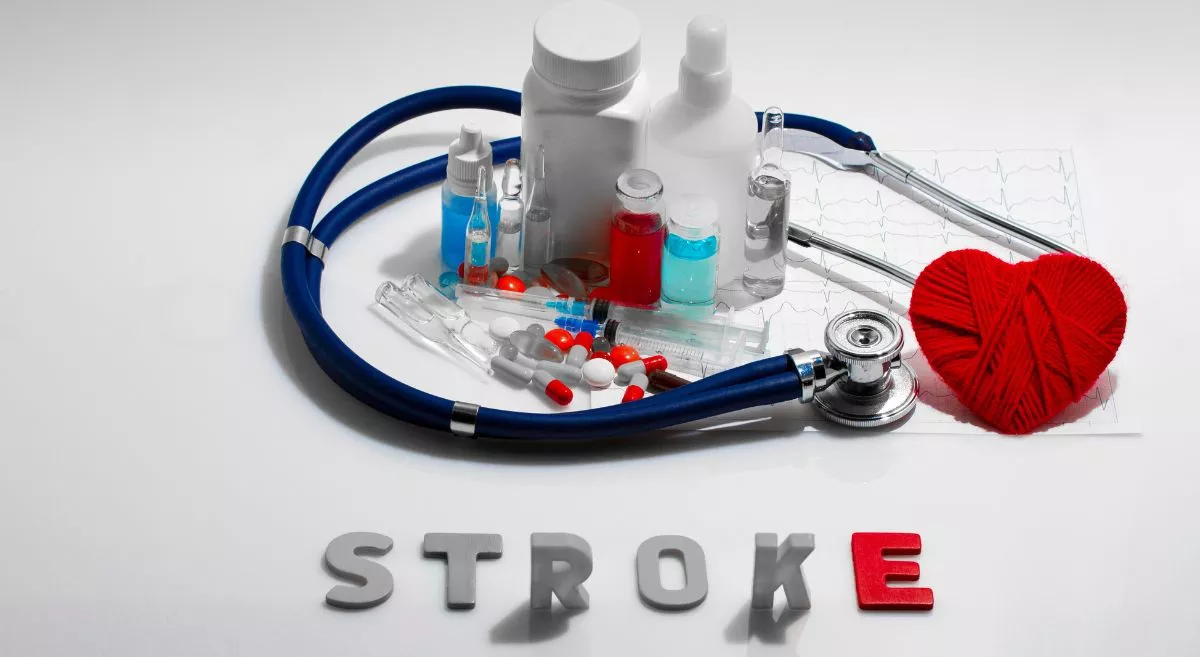Every year, millions of people suffer strokes, yet the good news is that up to 80% of strokes are preventable.By knowing their risk factors and making impactful lifestyle changes, one can decrease the chances of falling victim to this life-altering disease.At Aster CMI Hospital, our goal is to ensure you remain a cardiac and stroke-free patient. If you are a stroke survivor or are at risk for one, this blog provides easy-to-understand, research-based tips to protect you from this deadly disease and nurture your well-being.
What is a Stroke?
A stroke is a sudden disruption of blood flow to a portion of the brain that results in inadequate blood supply and nutrition for brain tissues. In this situation, brain cells start to die within the first minutes. Strokes require your immediate attention to ensure no long-term effects are seen.
There are two main types of strokes:
- Ischemic Stroke: Resulting from a blockage to a blood vessel supplying the brain.
- Hemorrhagic Stroke: Due to ruptured blood vessels causing bleeding inside or around the brain.
A less severe form of ischemic stroke is a Transient Ischemic Attack (TIA) is a warning sign that indicates a potential stroke.
What are the common risk Factors for Stroke?
Risk factors can be classified as one that can be controlled known as Modifiable risk factor and one which cannot be controlled known as Non-Modifiable risk factor. We have mentioned below both of these risk factors
Non-Modifiable Risk Factors
Age: The chance of getting a stroke increases with age however a lot of younger age groups have also been vulnerable to stroke in the last 2 decades due to dietary and environmental changes.
Gender: Men have a higher risk of developing a stroke while the mortality rate for women patients is more
Family History: You are at greater risk if you or other members of your family have suffered a stroke or cardiovascular disease.
Ethnicity: Some people are more likely to be affected than others, for example, South Asians.
Modifiable Risk Factors
To your surprise, most risk factors for stroke are within your control. These include:
- Hypertension
- Smoking
- Diabetes
- High Cholesterol
- Obesity
- Physical Inactivity
- Over Consumption of Alcohol
- Obstructive sleep apnea.
How Can You Prevent stroke?
Here are some insightful tips for stroke Prevention which can help you.
1. Control Blood Pressure (Hypertension)
High blood pressure is the most common cause of stroke. The condition must be kept under tight control.
- Maintain a blood pressure of less than 120/80 mmHg.
- Have your blood pressure checked often at home.
- Adhere to prescribed medications and check up on your doctor.
- Avoid too much salt: high sodium levels will increase blood pressure.
- Eat more potassium-rich foods, such as bananas, oranges, and spinach.
2. Have a Healthy and Balanced Diet
A healthy diet is a very important preventive measure for stroke.
- Practice the DASH (Dietary Approaches to Stop Hypertension) diet or Mediterranean diet that focuses on fruits, vegetables, whole grains, and lean proteins.
- Avoid saturated fats, trans fats, and high amounts of cholesterol.
- Don't consume too much sugar and processed foods.
- Include fat fish like salmon and mackerel that contain omega-3 fatty acid for the heart and brain.
3. Perform Regular Exercise
Regular exercise lowers stress levels, improves cardiovascular health and assists in controlling weight.
- Strive for moderate aerobic activity for 150 minutes or vigorous activity for 75 minutes in a week.
- Walking, cycling, swimming, and yoga are some of the great activities.
- Even little things like taking the stairs instead of the lift or short walks during lunch break can help.
4. Quit Smoking
Smoking doubles your chances of stroke, because the toxic chemicals damage blood vessels, which increase your blood pressure, and trigger blood clots.
- Seek counselling or nicotine replacement therapy to quit smoking.
- Try to avoid being exposed to second-hand smoke, as that is also harmful.
5. Manage Diabetes
Uncontrolled diabetes can damage blood vessels and increase the risk of stroke.
- Check your blood sugar regularly.
- Ensure that diabetic patients have a diet that includes food low in glycemic index.
- Exercise regularly to improve insulin sensitivity.
- Follow the medication course as prescribed by your doctor and go for regular check-ups.
6. Maintain Healthy Cholesterol Levels
High levels of bad cholesterol (LDL) leads to plaque buildup in arteries, which increases the risk of stroke. To avoid that, incorporate the below mentioned things in your lifestyle:
- Have a balanced diet including healthy fats, such as avocados, nuts, and olive oil
- Avoid fried foods, instead choose baked, grilled, or steamed alternatives.
- Consult your doctor about statins, if you suffer from high cholesterol.
7. Obtain and maintain a healthy weight.
Obesity puts a strain on your heart and is also linked to high blood pressure, high cholesterol and diabetes.
- Maintain a Body Mass Index (BMI) of 18.5 to 24.9
- Healthy diet combined with regular exercise is a recipe for long-term weight loss
8. Consume Less Alcohol
Heavy alcohol consumption can also increase blood pressure and cause abnormal heart rhythms called atrial fibrillation, which together contribute to the risk of stroke. Select low-alcohol options whenever possible.
9. Manage Stress and Mental Health
Chronic stress and untreated mental health can cause high blood pressure and unhealthy habits.
- Perform relaxation techniques such as deep breathing, meditation, and mindfulness.
- Participate in activities and hobbies that brings you joy and pleasure
- See a professional if you have anxiety or depression.
10. Recognize Warning Signs of a Stroke
One can save their life and prevent any long term damage by knowing the signs of a stroke. Remember, an acronym called BEFAST to recognize stroke symptoms:
- Balance: Loss of balance while walking
- Eye: Blurring of vision/ loss of vision or double vision
- Face: Numbness and drooping on one side of the face.
- Arms: One arm is weak and unable to lift
- Speech: Slurred and difficult in speaking.
- Time: Take immediate action and call emergency services immediately. Time is brain!!! And Aster CMI is a stroke ready hospital with state of the art stroke care and management.
Why should one get Regular Check-Ups done?
Preventive strategies are put in place through regular health check-ups to identify and control risk factors before they become worse. The Comprehensive Health Check-up offered at Aster CMI Hospital focuses mainly at cardiovascular and brain health. Early detection helps to prevent serious complications.
Can Medications Help in Stroke Prevention?
In some cases, lifestyle changes may not be sufficient. In those cases, medications plays a crucial role:
- For high blood pressure, Antihypertensives can be consumed
- Statins for high cholesterol
- Antiplatelet or Anticoagulant Therapy to prevent ischemic strokes.
- Diabetes medications to control blood sugar levels.
Always consult your doctor before starting or stopping your medication.
Women-Specific Considerations
Women have unique risks of having a stroke because of factors like pregnancy, birth control pills and changes in estrogen and progesterone after the onset of menopause.To prevent that, following steps to consider:
- Monitor the blood pressure closely throughout the pregnancy
- Discuss safe ways of contraception with your healthcare provider, especially if you have existing risk factors.
- Be aware of what a stroke looks like, as the symptoms of a stroke often differ in women.
Conclusion
Preventing a stroke is not just about adding years to your life but it’s about adding life to those years by being healthy and happy. Taking consistent small steps significantly reduces your risk of developing a stroke. At Aster CMI Hospital, we provide personalized care and support to help you on your journey to better health. Then whether it’s about providing expert diagnosis, managing risk factors, or conducting routine screening, we are available at every step of it to support you. It’s time to Take charge of your health and protect your future today. And not to forget. Prevention is always better than cure.






